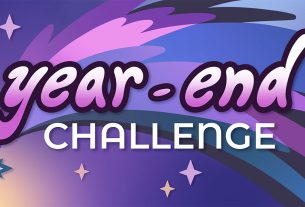The rights we have in the offline world–to speak freely, create culture, play games, build new things and do business–must be available to us online, as well. This core belief drives EFF’s work to fight the misuse of the patent system.
Despite significant progress we’ve made over the last decade, patents, and in particular vague software patents, remain a serious threat to online rights. The median patent lawsuit isn’t filed by what Americans would recognize as an ‘inventor,’ but by an anonymous limited liability company that provides no products or services, and instead uses patents to threaten others over alleged infringement. In other words, a patent troll. In the tech sector, more than 85% of patent lawsuits are filed by these “non-practicing entities.”
That’s why at EFF, we continue to help individuals and organizations fight patent threats related to everyday activities like using CAPTCHAs and picture menus, tracking packages or vehicles, teaching languages, holding online contests, or playing simple games online.
Here’s where the fight stands as we move into 2025.
Defending the Public’s Right To Challenge Bad Patents
In 2012, recognizing the persistent problem of an overburdened patent office issuing a countless number dubious patents each year, Congress established a system called “inter partes reviews” (IPRs) to review and challenge patents. While far from perfect, IPRs have led to the cancellation of thousands of patents that should never have been granted in the first place.
It’s no surprise that big patent owners and patent trolls have long sought to dismantle the IPR system. After unsuccessful attempts to persuade federal courts to dismantle IPRs, they shifted tactics in the past 18 months, attempting to convince the U.S. Patent and Trademark Office (USPTO) to undermine the IPR system by changing the rules on who can use it.
EFF opposed these proposed changes, urging our supporters to file public comments. This effort was a resounding success. After reviewing thousands of comments, including nearly 1,000 inspired by EFF’s call to action, the USPTO withdrew its proposal.
Stopping Congress From Re-Opening The Door To The Worst Patents
The patent system, particularly in the realm of software, is broken. For more than 20 years, the U.S. Patent Office has issued patents on basic cultural or business practices, often with little more than the addition of computer jargon or trivial technical elements.
The Supreme Court addressed this issue a decade ago with its landmark decision in a case called Alice v. CLS Bank, ruling that simply adding computer language to these otherwise generic patents isn’t enough to make them valid. However, Alice hasn’t fully protected us from patent trolls. Even with this decision, the cost of challenging a patent can run into hundreds of thousands of dollars, enabling patent trolls to make “nuisance” demands for amounts of $100,000 or less. But Alice has dampened the severity and frequency of patent troll claims, and allowed for many more businesses to fight back when needed.
So we weren’t surprised when some large patent owners tried again this year to overturn Alice, with the introduction of the Patent Eligibility Restoration Act (PERA), which would bring the worst patents back into the system. PERA would also have overturned the Supreme Court ruling that prevents the patenting of human genes. EFF opposed PERA at every stage, and late this year, its supporters abandoned their efforts to pass it through the 118th Congress. We know they will try again next year–we’ll be ready.
Shining Light On Secrecy In Patent Litigation
Litigation in the U.S is supposed to be transparent, particularly in patent cases involving technologies that impact millions of internet users daily. Unfortunately, this is not always the case. In Entropic Communications LLC v. Charter Communications, filed in the U.S. District Court for the Eastern District of Texas, overbroad sealing of documents has obscured the case from public view. EFF intervened in the case to protect the public’s right to access federal court records, as the claims made by Entropic could have wide-reaching implications for anyone using cable modems to connect to the internet.
Our work to ensure transparency in patent disputes is ongoing. In 2016, EFF intervened in another overly-sealed patent case in the Eastern District of Texas. In 2022, we did the same in California, securing an important transparency ruling. That same year, we supported a judge’s investigation into patent owners in Delaware, which ultimately resulted in referrals for criminal investigation. The judge’s actions were upheld on appeal this year.
It remains far too easy for patent trolls to extort and exploit individuals and companies simply for creating or using software. In 2025, EFF will continue fighting for a patent system that’s open, fair, and transparent.
This article is part of our Year in Review series. Read other articles about the fight for digital rights in 2024.



